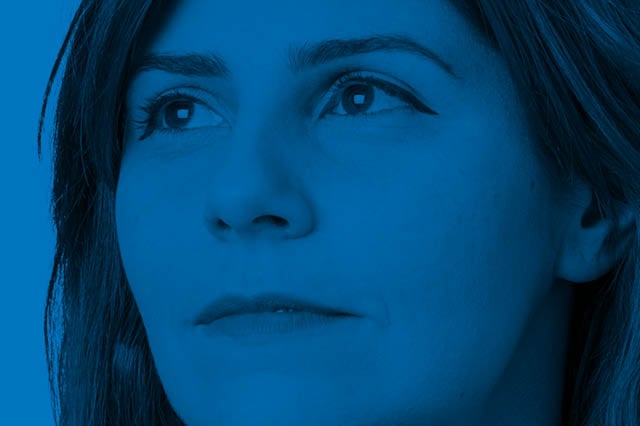What life experiences are unique to you?
During the clerkship process, many people tell you to be yourself. It's good advice, but it might sound hard to apply. This article will help you understand what being yourself can mean.
A good starting point is to consider the questions What life experiences are unique to me? And What experiences were particularly formative in who I am today?
Now, you might have a couple of understandable reactions that initially get in the way:
- You think you've had a very 'normal' upbringing and therefore have no experiences you would consider 'unique'.
- You assume that 'unique' experiences mean some truly stellar achievement or something you're the only person qualified to speak about.
Instead, though, look at it this way:
- Life experiences are those that are formative or meaningful to you. When you talk about them, you'll likely show some emotion.
- A recruiter reads many clerkship applications, so the writer showing some emotion will likely stand out.
What are unique experiences?
Unique experiences don't necessarily mean being a world-class athlete, prize winner or Rhodes Scholar. Unique experiences are those that have been particularly important to you.
Clerkship applicants might mention:
- growing up in a single-parent family;
- coming from a migrant background or being the first in your family to attend university;
- going on an exchange program;
- working in retail while studying; or
- missing the cut-off mark to enter law school and doubling down to secure an offer in your second year.
These stories can be incredibly powerful to share. The thing, though, is that they're only powerful if they genuinely mean something to you, so really think about what your unique experiences are.
As part of the Allens application process, you'lll be invited to complete the Rare Contextual Recruitment assessment. The optional survey will help us gain a better understanding of your achievements and any challenges you may have overcome, beyond what we may see on your resume, using your educational, socioeconomic and personal information. We are proud to be the first Australian business to launch the Rare system to help us increase diversity in our workforce. Learn more about Rare.
How do I choose which experiences to share?
Stories that are good to share are usually those that:
- involve learning something;
- involve other people; and
- evoke positive emotions.
After thinking about what your defining life experiences have been, it might be helpful to get the input of a family member, friend or mentor.
When to share them
You'll get the opportunity to share your stories at multiple points in the clerkship process, particularly because you'll encounter many different types of questions:
- written short-answer questions;
- behavioural interview questions;
- 'tell us about yourself' interview questions; and
- 'why is this on your CV' interview questions.
Consider sharing these stories when a more detailed response is needed or when you have more 'airtime' to share them. Take advantage of the opportunity to elaborate on them during an interview.
When preparing your application, see these questions as opportunities to share real, heartfelt stories about yourself. You will learn more about yourself and build a genuine connection with your reader or listener.
What are your key strengths?
Throughout the clerkship application process, you'll find you're encouraged to identify and reflect on your strengths and the personal experiences that have helped develop them. The key to writing an effective application is linking your strengths to life experiences.
Sitting back and acknowledging what you're good at can feel odd. Remember, your strengths don’t need to come from legal experiences. Consider different contexts where you've demonstrated qualities such as:
- perseverance;
- initiative;
- teamwork;
- independence;
- courage; and
- conscientiousness.
For example, an applicant could highlight their resilience in a clerkship interview by demonstrating their learnings from an exchange program they completed while studying. List all the formative experiences in your life, and think deeply about how they've changed you and how your reaction in those situations produced a good outcome.
It can also be helpful to do tests such as the Myers-Briggs. Having an idea of your personality type can give you an idea of your strengths. You can then look at how you've demonstrated those strengths in your personal experiences.
Once you've determined your strengths, you can craft a compelling narrative:
- Briefly mention your key strengths in your cover letter.
- Include work or life experiences that demonstrate your strengths in your resume.
- Elaborate on the strengths highlighted in your cover letter, drawing from the experience in your resume in short-answer questions.
This strategy enables you to seamlessly integrate your resume, cover letter and other application documents into a cohesive story, creating a credible and consistent narrative so the person reading your application will enjoy it. This more compelling type of clerkship application is much more powerful than disjointed documents that are impressive by themselves but don’t necessarily support each other.
How do you cope with rejection?
After countless hours of researching firms, self-reflection, writing cover letters and sitting through interviews, it can be heartbreaking if rejections start rolling in, especially if they come from your dream firms. There are several ways of constructively looking at and working with rejection:
- Rejection will build your resilience. Following a period of self-reflection, you should better understand your professional strengths and weaknesses and have improved your written and verbal skills.
- Don't take rejection personally. There are so many reasons why a firm could have rejected your application. Perhaps they've decided to reduce their clerkship intake, or it was simply an exceedingly competitive applicant pool.
- Maintain a connection with your interviewers. Thank your interviewers for their time and keep in contact with them via LinkedIn. The legal industry can be small and lateral movements are common, so you might work with them again one day.



